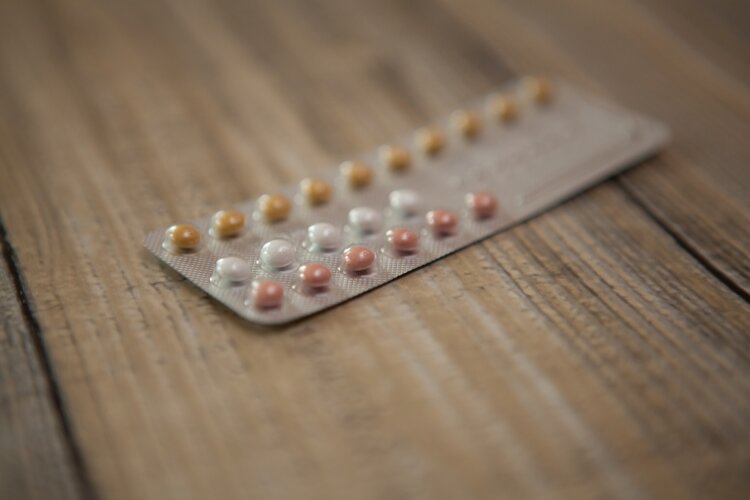
Periods are a shared female experience. I don’t actually remember when I first got my period, but I do remember sitting in my middle school cafeteria when all the girls found out I had “started.” This was always headline news when girls got theirs—and a year later the girls who still hadn’t started theirs was the talk of the lunch table.
And, yes, while it’s true middle schoolers don’t have a lot going on, it’s also true that periods bring women together at nearly any age. It’s not unusual for a coworker to come up to your desk and ask for a tampon in a whisper. It’s not unusual for female friends to commiserate about having bad cramps. And it’s certainly not unusual to cancel plans with a friend because it’s that time of the month and you’re miserable (and her completely understanding).
But what apparently is unusual is choosing not to have your period.
I suffered from debilitating cramps for years. I would often get so sick I would vomit and have to call in sick to school (and later work). My mom had symptoms like this, and my college roommate also had pretty terrible periods, too, so I thought this was normal. It wasn’t until I was in my early 20s when I offhandedly mentioned it to a doctor that he prescribed birth control on the spot that completely changed my life. For quite a few years I took my pill, had a “normal” period sans cramps and was so thankful for the invention of birth control.
But about seven years ago, I moved and had to find a new gynecologist. When she asked what my birth control was, for the life of me, I could not remember. So she suggested I try a new one: Lo Loestrin Fe. “Is that the one that causes blood clots?” I asked her. She assured me it wasn’t. (I was thinking of Yaz.)
She went on to explain that the pill has a very low amount of estrogen and that I may experience very light periods. “Many women only have two-day periods; some women won’t even have a period at all,” she told me. She had been so kind and knowledgeable throughout the appointment—and I had read just about every ZocDoc review before choosing her—so I trusted her with this birth control decision.
So I started taking the new pill. After the first couple months I turned into one of those “many women”—I had short, two-day periods that were cramp (and vomit) free. I was in love. And then a funny thing happened: I became one of those “some women.” I didn’t have a period at all. I figured my hormones were just “balancing out” with the pill (I have no idea if that’s how birth control actually works, but it’s what I told myself must be happening). Fast-forward a couple more months and I still hadn’t had a period. At. All.
I started to freak out—this isn’t “natural.” I dialed up my gynecologist and she reminded me what she said the day she prescribed me the pill: It’s normal not to have a period. She assured me that nothing was wrong, and I was totally fine.
So I stopped worrying and before I knew it, it’s seven years later and I still haven’t had a “real” period. Occasionally I’ll have spotting and every once in a while I’ll feel a twinge of the start of a cramp that never comes to fruition. It’s truly amazing.
But this is not an ad for Lo Loestrin Fe. I have no medical training and am certainly not endorsing this for anyone. I explain all of this to tell you how my personal birth control decision slowly opened me up to judgment from other women.
After the first year on the pill, I would tell friends about how I hadn’t had a period in a few months. I would see an eyebrow raise and have to immediately say, “No, I’m not pregnant!” That was always immediately followed with, “That’s so weird. I wouldn’t like that.” So I would explain why I was enjoying it: Not only was it great not to have cramps, it was nice not worrying about starting your period at awkward times, I was no longer ruining underwear, and I was saving so much money (and the environment) by not buying tampons. After that, I’d either just get a “hmm” response or a cautious “yeah, okay.”
But the longer I went without having a period, the stronger the reactions I received. Now when I tell someone I haven’t had a period in seven years, I hear audible gasps. They ask if something is wrong with me. And then when I explain why, they tell me it can’t be safe or healthy. None of these people, mind you, are in the healthcare profession.
The fact that women think it’s “unhealthy” doesn’t bother me. I trust my doctor—and I’ve researched online myself—and I am happy with my decision. What does bother me is women judging me for my personal birth control decisions. In these interactions, there is an underlying tone of “that’s not what you should do as a woman.” It seems they think women should have periods so they can one day have children. Even if this birth control prevented me from having kids in the future (it doesn’t), that would still be my choice.
Most, if not all, of the women who have given me the side eye over this are self-professed feminists. They fully support women who eat their placentas or get breast implants—but choosing not to bleed once a month is a step too far apparently. What happened to the type of feminism that supports a woman’s choice, no matter what?
And while I still believe that periods are the shared female experience, the more years that go by without me having a period, the farther removed I am from that. When women in the office come up and whisper to me, asking to borrow a tampon, I have to send them away empty-handed. When a friend is trying to commiserate with me about the cramps she’s having, I have to think back many years to remember what’s that like. (I assume women who’ve gone through menopause eventually start to feel this as well.)
I’m no longer part of this sisterhood.
So maybe it’s less that women are judging me for my birth control choice… maybe they’re just upset I don’t have supplies to share?


Grok Nation Comment Policy
We welcome thoughtful, grokky comments—keep your negativity and spam to yourself. Please read our Comment Policy before commenting.